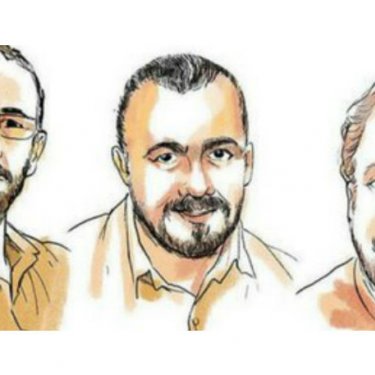48 journalists on trial this week in Turkey

No fewer than 48 journalists will be in court this week in three different trials in Turkey. Most of them are in prison. Reporters Without Borders (RSF) condemns the baseless charges on which they are being tried and calls for the immediate release of those detained.
Nowadays barely a week goes by in Turkey without journalists being arrested or tried. Another six are going on trial today in connection with their coverage of information obtained in 2016 by a group of far-left hackers from the emails of President Erdoğan’s son-in-law, energy minister Berat Albayrak.
The information they published, in which there was a clear public interest, involved petroleum trade with Iraqi Kurdistan, the crackdown on the “Occupy Gezi” movement and the government’s progressive subjugation of the Turkish media.
Scapegoats
Three of these six journalists – investigative reporter Tunca Öğreten, DİHA news agency reporter Ömer Çelik and Mahir Kanaat of the left-wing daily BirGün – have already spent ten months in provisional detention. The other three – Derya Okatan, Metin Yoksu and Eray Sargın – were arrested at the same time as the others but were freed after 24 hours in police custody.
They are accused of distorting the content of Albayrak’s emails, divulging state secrets and benefiting various terrorist organizations by “creating a negative perception of the authorities.”
Despite an obvious ideological contradiction, Öğreten is also accused of being simultaneously linked to the DHKP-C, a far-left armed group, and to the movement led by Muslim cleric Fethullah Gülen, which is alleged by the government to have been behind the abortive coup in July 2016. Similarly incongruous accusations have also been made against some of his colleagues.
“The fate of these journalists is yet another example of the absurd and contradictory accusations that many journalists are facing in Turkey,” said Johann Bihr, the head of RSF’s Eastern Europe and Central Asia desk. “Provisional detention is being used in a punitive and arbitrary manner. We again call for the immediate release of all media personnel who have been jailed in connection with their work.”
Spate of trials
The trial of 29 journalists accused of Gülen Movement membership also resumes today. Twenty-three of them have been held provisionally for more than a year. The court ordered the release of most of them at the end of the first hearing but their release was blocked at the last moment. Thirteen of these journalists, including Murat Aksoy and Atilla Taş, are also being prosecuted on charges of “trying to overthrow the government and constitutional order.”
Thirteen other journalists, including Faruk Eren, Ertuğrul Mavioğlu and Celal Başlangıç, are due to appear in court on 26 October for participating in a campaign of solidarity with Özgür Gündem, a Kurdish newspaper that had been the victim of judicial persecution.
In this campaign, a total of 56 journalists, human rights defenders and intellectuals took turns at being the newspaper’s “editor for a day” from May to August 2016. Human rights defender Murat Çelikkan was released on 21 October after several months serving a jail sentence for his role in the campaign.
RSF’s Turkey representative, Erol Önderoğlu, is another of the participants in this campaign who is being prosecuted. His trial is due to resume in Istanbul on 26 December.
The trial of 11 human rights defenders, including both the president and the director of Amnesty International in Turkey, is due to start in Istanbul tomorrow. Like independent journalists, they are being subjected to vitriolic attacks in Turkey’s pro-government media for, inter alia, following the Cumhuriyet newspaper trial. They are facing up to 15 years in prison on charges of belonging to various terrorist organizations.
Turkey is ranked 155th out of 180 countries in RSF’s 2017 World Press Freedom Index. The already worrying media situation has become critical under the state of emergency proclaimed after the July 2016 coup attempt. Around 150 media outlets have been closed and more than 100 journalists are currently in prison.



